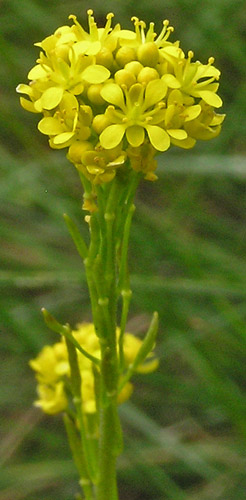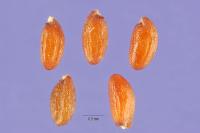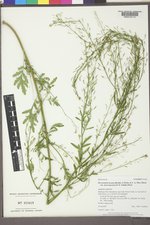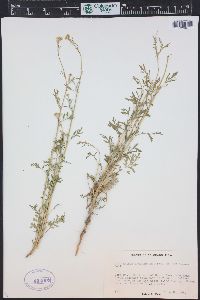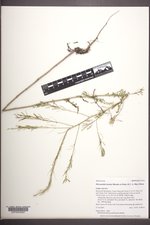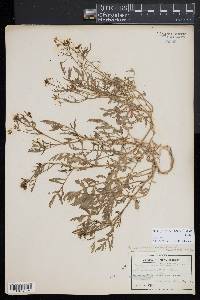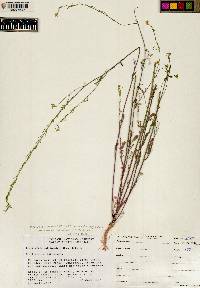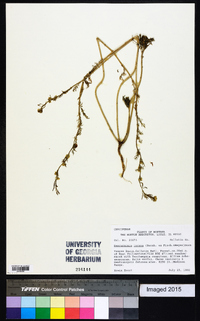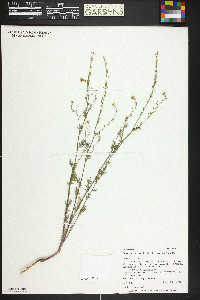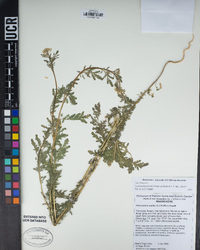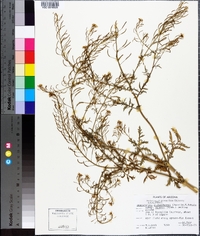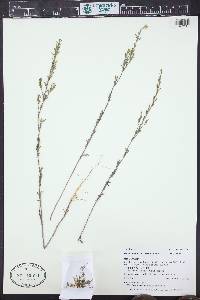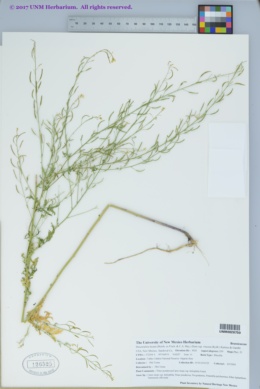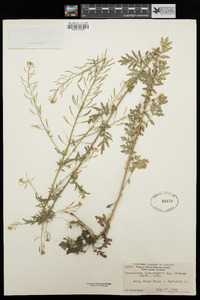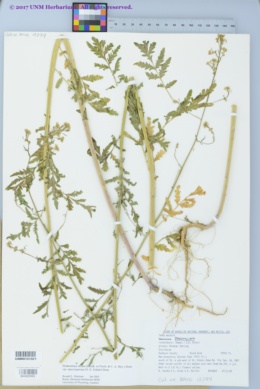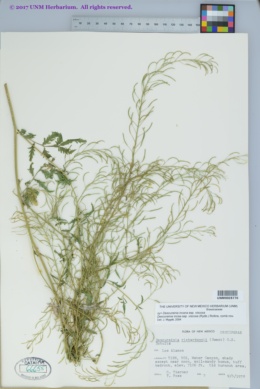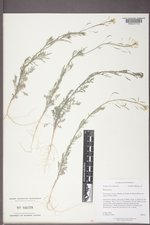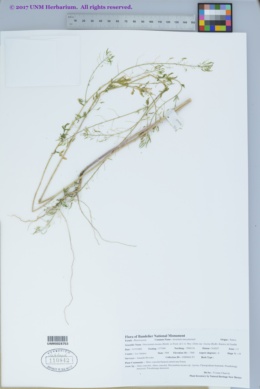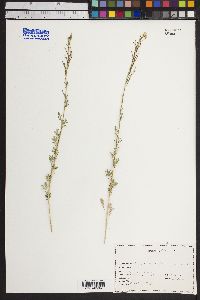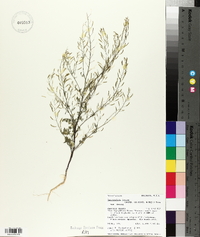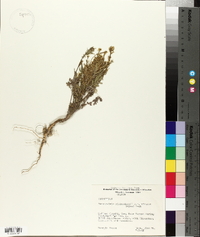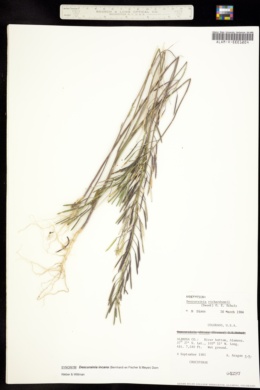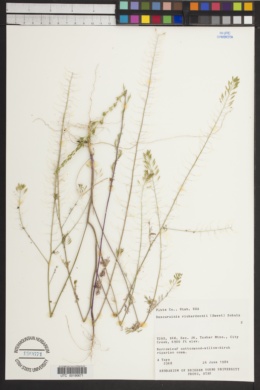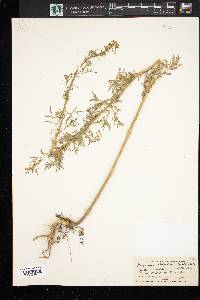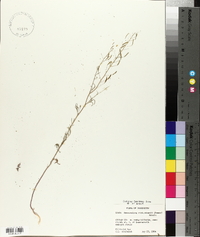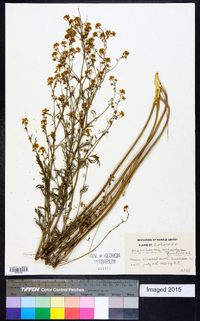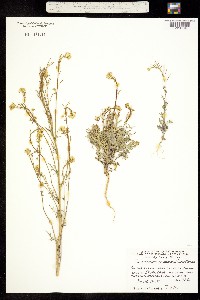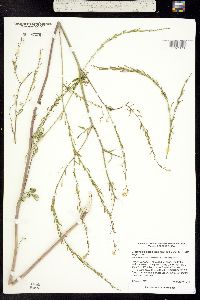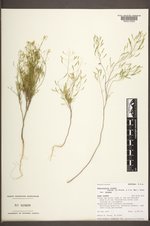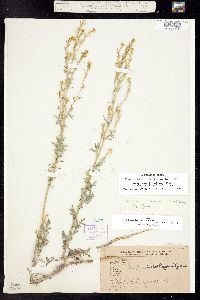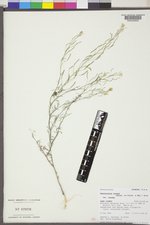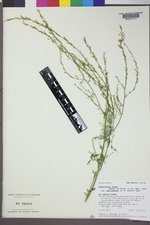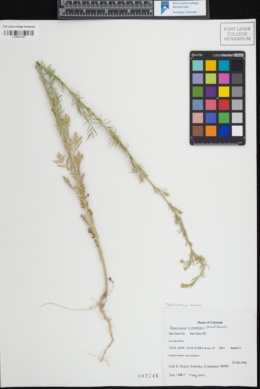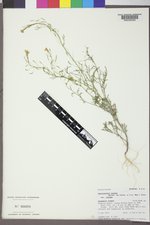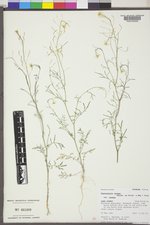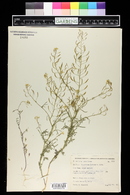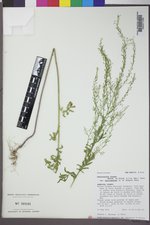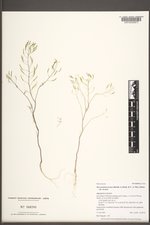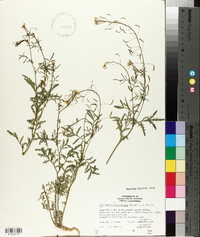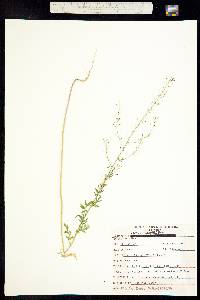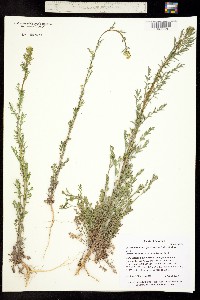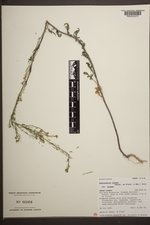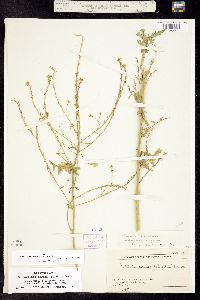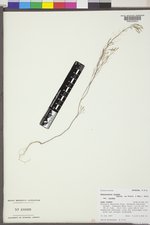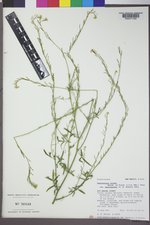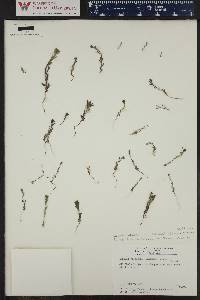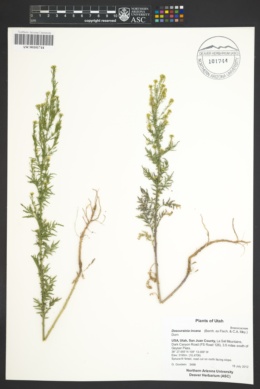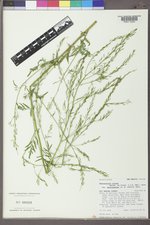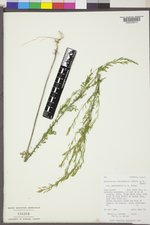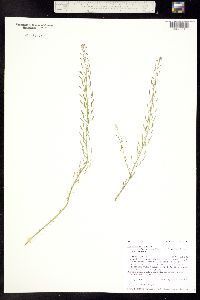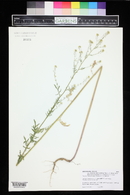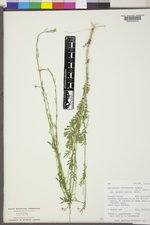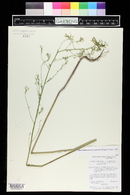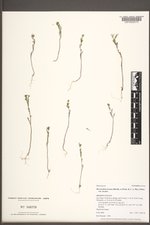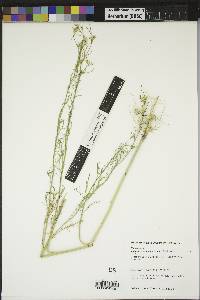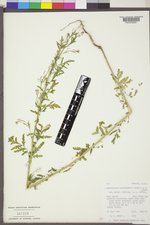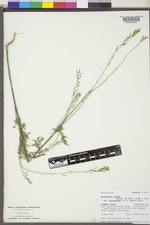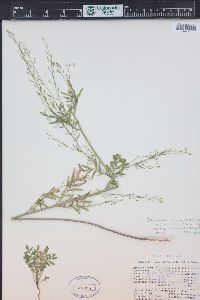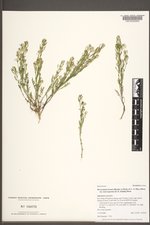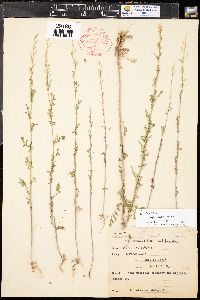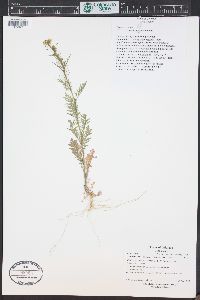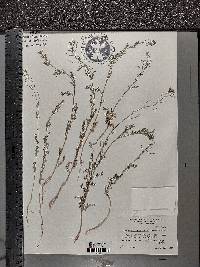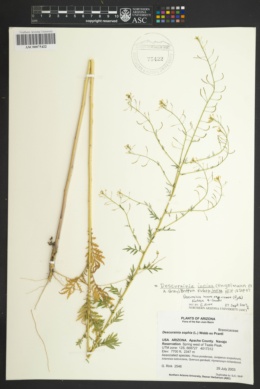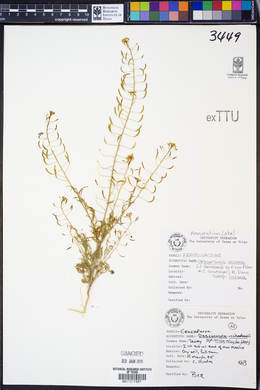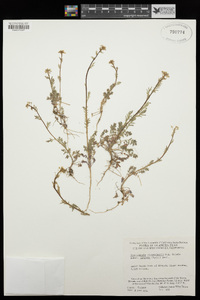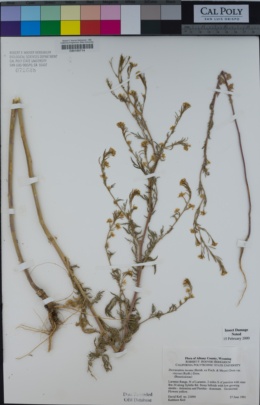Descurainia incana
|
|
|
|
Family: Brassicaceae
Mountain Tansy-Mustard, more...mountain tansymustard, mountain tansy mustard
[Descurainia incana var. brevipes, moreDescurainia richardsonii var. richardsonii O.E. Schulz, Sisymbrium richardsonii Sweet] |
Biennials; usually eglandular, rarely glandular; finely pubescent, sometimes canescent, trichomes dendritic. Stems erect, unbranched basally, often many-branched distally, (1.5-)2.5-12 dm. Basal leaves: petiole 1-3.5(-5.5) cm; blade pinnatifid, broadly lanceolate to oblanceolate or obovate in outline, 1.5-10(-13) cm, lateral lobes linear to oblong or narrowly lanceolate, [3-10(-15) × 1-3(-5) mm], margins entire. Cauline leaves sessile or shortly petiolate; blade smaller distally, distal lobes often narrower. Racemes considerably elongated in fruit. Fruiting pedicels erect to erect-ascending, straight, 2-8(-11) mm. Flowers: sepals erect, yellowish, oblong, 1-1.8 mm, sparsely pubescent; petals oblanceolate, 1.2-2 × 0.3-0.6 mm; median filaments 1.4-2 mm; anthers 0.3-0.4 mm. Fruits erect, (often strictly appressed to rachis), linear, slightly torulose, (4-)5-10(-15) × 0.7-1.2(-1.5) mm, (acute at both ends); valves each with distinct midvein; septum often with distinct midvein; ovules 14-22 per ovary; style 0.1-0.4 mm, glabrous. Seeds uniseriate, reddish brown, ellipsoid to narrowly oblong, 0.8-1.2 × 0.4-0.5 mm. 2n = 14, 28. Flowering May-Sep. Alpine and subalpine areas, gravel and sand bars, scree, grassy slopes, prairies, steep rocky slopes, roadsides, disturbed sites, waste grounds, meadows, spruce-fir, pine, aspen, or sagebrush communities; 100-3500 m; Alta., B.C., Man., N.W.T., Nunavut, Ont., Que., Sask., Yukon; Alaska, Calif., Colo., Idaho, Maine, Minn., Mont., Nev., N.Mex., N.Dak., S.Dak., Utah, Wyo. Descurainia incana is a distinctive species readily separated from the other North American taxa of the genus by having fruits and fruiting bases strictly appressed to rachises, and septums with a distinct midvein. Collections identified as such, but with fruits and pedicels not or only weakly appressed to the rachis, most likely represent hybrids between this species and others.
FNA 2010, Kearney and Peebles 1969, McDougal 1973 Duration: Perennial Nativity: Native Lifeform: Forb/Herb General: Herbaceous annuals, perennials, or biennials, to 120 cm tall, stems leafy, branching above, herbage stellate-pubescent and sometimes glandular. Leaves: An early withering basal rosette, lower leaves 3-10 cm long, pinnate, the leaflets pinnatifid and deeply incised or merely toothed in the alternate upper leaves, these short-petioled or sessile. Flowers: Bright yellow, petals small, oblanceolate, to 3 mm long, sepals lightly pubescent, to 2 mm long, median filaments 1.5-2 mm, flowers borne in open, terminal racemes on pedicels 6-10 mm long, these becoming greatly elongated in fruit. Fruits: Siliques 9-15 mm long, linear, short-beaked, acute at both ends, slightly constricted between the seeds (torulose), valves and septum with distinct midveins, borne on a very short or obsolete style, fruits often strictly appressed to the rachis. Seeds 4-1 Ecology: Found on gravelly soils and sandbars, in alpine and subalpine areas, grassy slopes, rocky slopes, prairies, roadsides, disturbed areas, spruce-fir, pine, aspen, and sagebrush communities, from 350-11,500 ft (106-3505 m); flowering May-August. Distribution: Great Lakes region to Yukon, south to northern Mexico and Baja California. Notes: Look for this species under Descurainia richardsonii in older texts. Good identifiers for this species are the seeds in a single row and the 9-15 mm siliques, these with the valves and septums with distinct midveins, borne on a very short or obsolete style. Ethnobotany: Unknown Etymology: Descurania is named in honor of Francois Descourain (1658-1740), a French pharmacist and botanist, while incana means grayish or hoary. Synonyms: Numerous, see Tropicos Editor: LCrumbacher 2011 |

